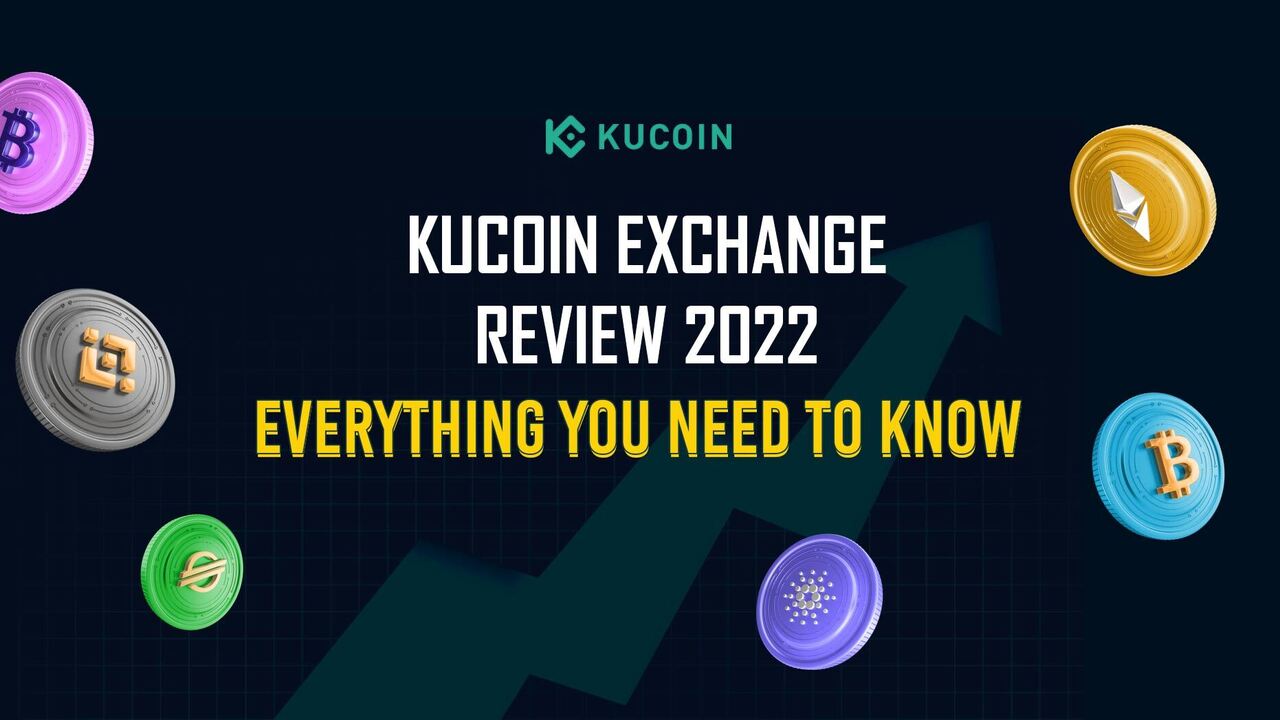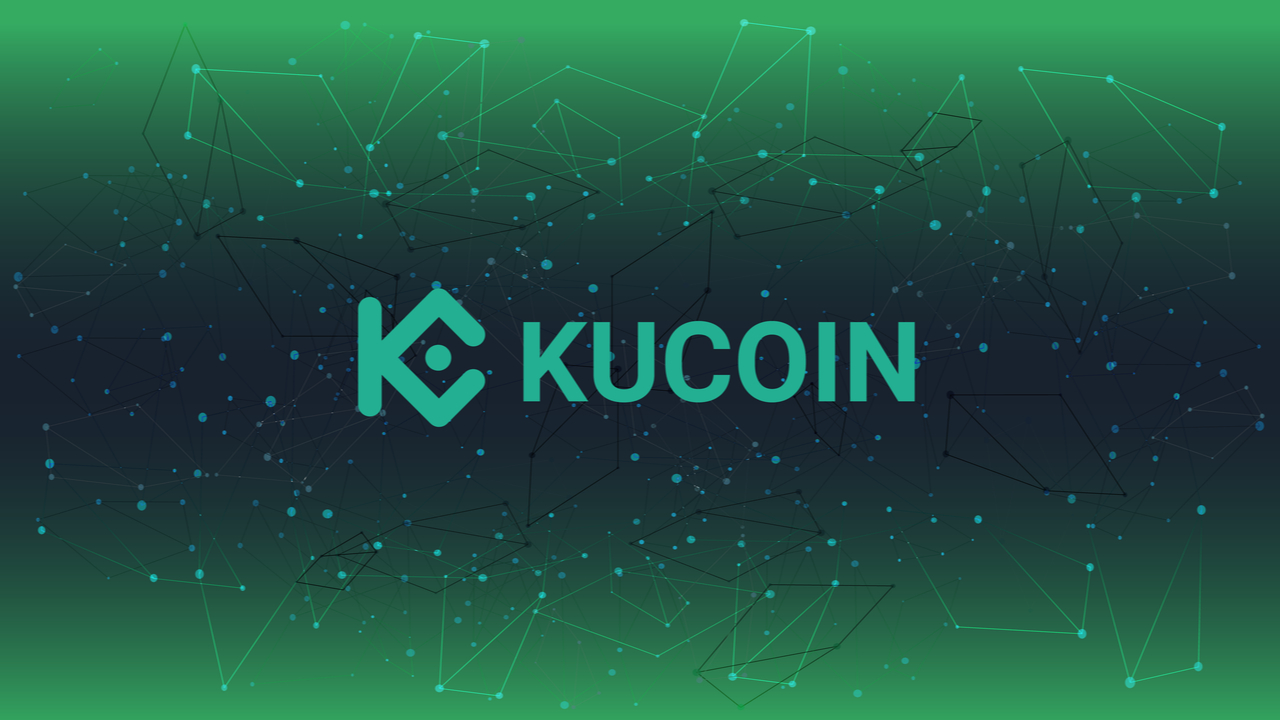 PRESS RELEASE. Leading personal financial services’ evaluator, the Ascent, named KuCoin crypto exchange the best cryptocurrency app of 2022. The Ascent is a flagship product of world-renowned private financial and investing advice company, The Motley Fool. Ascent rated KuCoin Exchange based on factors like fees, selection of coins, customer reviews, KYC rules, security features and […]
PRESS RELEASE. Leading personal financial services’ evaluator, the Ascent, named KuCoin crypto exchange the best cryptocurrency app of 2022. The Ascent is a flagship product of world-renowned private financial and investing advice company, The Motley Fool. Ascent rated KuCoin Exchange based on factors like fees, selection of coins, customer reviews, KYC rules, security features and […]
“If DeFi aims to reduce regulatory risk, the form of DeFi governance will gradually become a DAO,” writes KuCoin Labs in its annual report.
KuCoin Labs, the investment and research arm of crypto exchange KuCoin, has released its annual report, predictin that decentralized finance (DeFi) will still be a significant trend in the crypto industry in 2022 and governance will be run through decentralized autonomous organizations (DAOs).
With the DeFi ecosystem continuing to be plagued by criminal whales, the risks of financial loss within the sector are becoming more apparent. Because of this, calls to regulate decentralized finance began taking flight in 2021, and the sector has started to face enforcement actions over the past year.
As regulators close in on DeFi, KuCoin Labs has predicted that the industry may turn to DAO governance to reduce regulatory risks:
“If DeFi aims to reduce regulatory risk, the form of DeFi governance will gradually become a DAO.”
According to KuCoin Labs, a DAO that puts community interest first can carry out “true governance decentralization.” This is why the exchange has forecasted that the industry will see a shift in DeFi governance being coordinated using different mechanisms.
KuCoin Labs also suggested that the fundamental operational principles of DAOs are reasonable enough to be employed as foundations for the creation of legal entities. While the industry may not witness a DAO expansion breakthrough in the coming year, the report notes that refining their mechanisms may set the stage for their adoption by companies and corporations as well.
Related: How should DeFi be regulated? A European approach to decentralization
Meanwhile, blockchain-based protocol Syndicate recently announced that 450 new DAOs were created within its platform in a span of three weeks. It claims this accounts for 10% of all DAOs in existence.
Apart from this, the Marshall Islands recently recognized DAOs as legal entities, meaning that they can register and operate legally within the Pacific island nation’s jurisdiction. Collectively, this represents proof that the DAO governance structure is indeed starting to become more prevalent in the blockchain world.

Crypto exchanges are hacked surprisingly often. A few of the biggest crypto heists that occurred in the past few years are discussed in this article.
One of the best ways to protect your crypto investment is to secure a wallet and do your own research about the projects in the market.
Don't believe everything you're told. Instead, examine any claims made about investment, especially if they appear too good to be true or promise huge returns in a short period. Also, do not trust anyone who contacts you personally, whether a government official, a public personality, or a stranger, and asks for Bitcoin payments or offers you an "investment opportunity."
Whenever possible, enable two-factor authentication on your cryptocurrency wallet and exchange. Moreover, never give anyone your crypto wallet's private key or seed phrase, and keep that information offline in a cold wallet.
Check the URLs of websites two or three times. For example, when trying a phishing scam, scammers will replicate the URL of a valid site and replace letters and numbers, such as an "l" for "1" or a "0" for the letter "O." Furthermore, any offer that requires an upfront cost should be rejected, regardless of the amount, especially if the price must be paid in cryptocurrencies.
The biggest crypto heists to date are MT Gox, Bitgrail, Coincheck, KuCoin, PancakeBunny, Poly Network, Cream Finance, BadgerDAO, Vulcan Forged and Bitmart.
MT Gox was the first large-scale exchange hack, and it remains the most significant Bitcoin (BTC) heist from an exchange. The MT Gox robbery, on the other hand, was not a one-off occurrence. Rather, the site leaked cash from 2011 to February 2014.
Hackers stole 100,000 BTC from the exchange and 750,000 BTC from its consumers over a few years. These Bitcoin burglaries were valued at $470 million at the time, but they're now worth approximately ten times this amount. Shortly after the theft, MT Gox went into liquidation, with liquidators recovering roughly 200,000 of the stolen BTC.
Bitgrail was a small Italian exchange that traded in obscure cryptos like Nano (XNO). The exchange was hacked in February 2018, just as the price of XNO soared from a few cents to $33. At least 17 million coins (the equivalent of about $150 million) were taken from Nano wallets.
Many users began to express their dissatisfaction with the exchange before the attack (significantly lower withdrawal limits and transaction problems). According to the investigations, the coins were stolen from cold—not hot— wallets. Investigations persisted throughout the preceding three years, with Italian authorities now charging Bitgrail's owner of being behind the attacks.
Coincheck, based in Japan, had $530 million worth of NEM (XEM) tokens stolen in January 2018. Hackers took advantage of the fact that the currency was kept in a "hot" wallet, which meant it was connected to the server and thus "online" (a cold wallet sees funds stored offline).
The stolen coins were identified and marked as such by NEM developers, although there was conjecture that the monies were available on dark markets.
However, given how much the coins lost in value following the attack, it's unlikely that many people would have thought this was a good deal (the coins are now worth 83% less than they were—roughly $90 million).
KuCoin announced in September 2020 that hackers had obtained private keys to their hot wallets before withdrawing substantial quantities of Ethereum (ETH), BTC, Litecoin (LTC), Ripple (XRP), Stellar Lumens (XLM), Tron (TRX) and Tether (USDT). Since then, experts have claimed that they have reasonable cause to assume that crypto heist hackers are North Korean.
This flash loan attack, in which hackers were able to siphon $200 million from the platform, occurred in May 2021 and is among the more severe cases of cryptocurrency theft. The hacker loaned a big sum of Binance Coin (BNB) before manipulating its price and selling it on PancakeBunny's BUNNY/BNB market to carry out the attack.
This allowed the hacker to obtain a large number of BUNNY via a flash loan, dump all of the BUNNY on the market to lower the price, and then repay the BNB using PancakeSwap.
In August 2021, a hacker exploited a vulnerability in Poly Network's infrastructure and stole funds totaling more than $600 million. They didn't get away with their reward, though, in an odd twist. Instead, the hacker approached the platform and agreed to return the majority of the funds, except $33 million in Tether (USDT) that had been frozen by the issuers.
But the saga didn't end there: $200 million of the stolen assets were locked away in an account that required the hacker's password, according to Poly Network. The hacker initially refused to hand over the hacked crypto.
That is, until Poly Network pleaded with them to release it, gave them a $500,000 reward for discovering the system flaw, and even offered them a job! Poly Network later revealed that the private key had been handed to them by "Mr. White Hat."
Not only did hackers steal $130 million in the October 2021 incident related to robbing a cryptocurrency, but it was also Cream Finance's third attack of the year. Hackers took $37 million in February 2021 and $19 million in August 2021.
In the most recent attack, hackers used what was deemed a flaw in the DeFi platform's flash lending system. On the Ethereum network, they were able to take all of Cream Finance's tokens and assets, totaling $130 million.
A hacker succeeded in stealing assets from multiple cryptocurrency wallets on the DeFi network, BadgerDAO, in December 2021. The problem is thought to have started on November 10 when a malicious script was injected into the website's user interface.
Users' transactions may have been intercepted while the script was active. The attacker took 896 BTC valued at roughly $50 million at that time.
In December 2021, hackers stole $135 million from Vulcan Forged, a blockchain gaming startup. They stole private keys to 96 separate wallets before draining 4.5 million PYR tokens from them.
In December 2021, a hack of Bitmart's hot wallet resulted in the theft of about $200 million. At first, it was thought that $100 million had been stolen via the Ethereum blockchain, but additional research found that another $96 million had been stolen via the Binance Smart Chain blockchain.
Over 20 tokens were taken, including altcoins such as BSC-USD, Binance Coin (BNB), BNBBPay (BPay), and Safemoon, as well as substantial quantities of Moonshot (MOONSHOT), Floki Inu (FLOKI) and BabyDoge (BabyDoge).
Crypto fraudsters, especially scammers, prey on naive buyers in the physical world by reading the fine print in contracts.
Understandably, crypto heists pique the public's interest. The first consideration is the massive amount of money to be stolen—legacy financial organizations are rarely robbed of such large sums of money. Second, because cryptocurrencies have only lately piqued the public's interest, any hack is bound to generate headlines.
On top of that, hackers have discovered that stealing cryptocurrency is more straightforward than stealing cash or electronic money in the banking system. As a result, it is becoming more widespread. Moreover, as cryptocurrency is commonly stored in huge sums and can be transferred instantly and anonymously from anywhere using only a private key or passcode, crypto hackers target it.
Let's take a look at the biggest crypto thefts of all time in this article. Also, the article will outline why crypto exchanges keep getting hacked; why are crypto heists getting larger and what we can do to protect ourselves from crypto heists.
 Despite largely lagging behind the rest of the world on many other metrics, Africa however appears to have taken the lead where cryptocurrency or the blockchain is concerned. Africa-Based Kucoin Users Skyrocket in 2021 In African countries that are plagued by currency woes or hyperinflation, cryptocurrencies have emerged as a genuine alternative store of value. […]
Despite largely lagging behind the rest of the world on many other metrics, Africa however appears to have taken the lead where cryptocurrency or the blockchain is concerned. Africa-Based Kucoin Users Skyrocket in 2021 In African countries that are plagued by currency woes or hyperinflation, cryptocurrencies have emerged as a genuine alternative store of value. […] Kucoin Labs, the investigative and investment arm of Kucoin, a cryptocurrency exchange, has launched a $100 million fund to incubate early metaverse related projects. These include blockchain gaming initiatives, NFT platforms, and decentralized platforms, among others. The support will also include direct involvement with the projects selected, including counseling about branding and marketing. Kucoin Invests […]
Kucoin Labs, the investigative and investment arm of Kucoin, a cryptocurrency exchange, has launched a $100 million fund to incubate early metaverse related projects. These include blockchain gaming initiatives, NFT platforms, and decentralized platforms, among others. The support will also include direct involvement with the projects selected, including counseling about branding and marketing. Kucoin Invests […]
The world's sixth-largest cryptocurrency exchange by volume is making its move into the metaverse.
KuCoin Labs, the company behind the world's sixth-largest cryptocurrency exchange by trading volume with more than 500 crypto assets listed, announced on Wednesday that it would be launching a $100 million metaverse fund for early-stage projects. The money is also available for entities that develop blockchain-based games, nonfungible tokens, and decentralized applications. In addition, Kucoin will also provide business incubation services, branding, incentives, and business partnerships for developers selected into the fund.
Johnny Lyu, CEO of Kucoin, said the following in a prepared statement obtained by Cointelegraph:
"KuCoin Metaverse Fund will be launched to accelerate the evolution of the Internet industry. We hope to mature the emerging blockchain industry by further strengthening the application of blockchain technology to the metaverse projects."
Lou Yu, the head of KuCoin Labs, added:
"The concept of metaverse has remained at the theoretical level since it was proposed in the last century. It was not until the birth of the blockchain that metaverse became the next migration destiny for mankind."
The concept of a metaverse, or augmented virtual reality with its own digital economy, has been gaining traction ever since Facebook rebranded itself as Meta last month to focus on its development. Shortly afterward, Microsoft ventured into the metaverse with Team updates and Xbox upgrades. Then, Animoca Brands unveiled its plans for a K-pop NFT Metaverse. As more global brands move in, the total addressable market of the Metaverse is projected to grow to over $1.5 trillion by the end of 2030. Meanwhile, debates are ongoing as to whether or not the Metaverse should be centralized.
 Decentralized finance (defi) protocols continue to shine as the total value locked in defi is over $260 billion. While Ethereum started the defi trend and holds the lion’s share of TVL in defi, a great number of decentralized applications (dapps) are supporting a slew of alternative blockchains. Today’s Most Popular Dapps Support More Than One […]
Decentralized finance (defi) protocols continue to shine as the total value locked in defi is over $260 billion. While Ethereum started the defi trend and holds the lion’s share of TVL in defi, a great number of decentralized applications (dapps) are supporting a slew of alternative blockchains. Today’s Most Popular Dapps Support More Than One […]
According to the exchange, the meta office will allow users to decorate cyberpunks, interact with virtual furnishings, as well as chat and speak to each other in the virtual environment.
Crypto exchange KuCoin has announced it will be opening a virtual office inside the skyscraper from the decentralized metaverse Bloktopia.
In a Nov. 2 announcement, KuCoin said it would be joining the metaverse by launching an office inside Bloktopia’s platform, designed as a skyscraper. The virtual building has 21 different levels in recognition of the total supply of 21 million Bitcoin (BTC) and is expected to house other content creators including Polygon and Avalanche.
According to the exchange, the meta office will allow users to decorate cyberpunks, interact with virtual furnishings, as well as chat and speak to each other in the virtual environment. KuCoin has seemingly adopted a metaverse-friendly business model, offering support for Bloktopia’s native token BLOK as well as the utility token for Dreams Quest (DREAMS), a blockchain-based gaming platform aiming for a metaverse-based economy.

In the last week, major corporations including Facebook, Microsoft, and Nike have all announced their intentions to join the metaverse. Facebook officially rebranded to become Meta, Microsoft updated its Teams and Xbox gaming console services as part of its metaverse plans, and Nike’s job postings showed the apparel company was hiring a virtual shoe designer.
Related: KuCoin encourages greener crypto mining with proof-of-work pool
Whether crypto firms will follow KuCoin’s example in establishing a virtual office space for users remains to be seen, but Facebook chief product officer Chris Cox spoke at Web Summit 2021 today on how the environment could be better suited for some companies:
"I started having my staff meetings in workrooms, and the reason that it’s better for us is that you get to see body language and space audio which means you can talk over each other. You can use your hands which is a huge part of how you communicate, and then you can lean in and sort of change your attention based on posture which is a lot of how we have a meeting with the group.”
Launched in 2017, KuCoin reported it had 10 million users as of August. Last year, hackers stole roughly $275 million from the exchange before it was able to recover the majority of the funds.